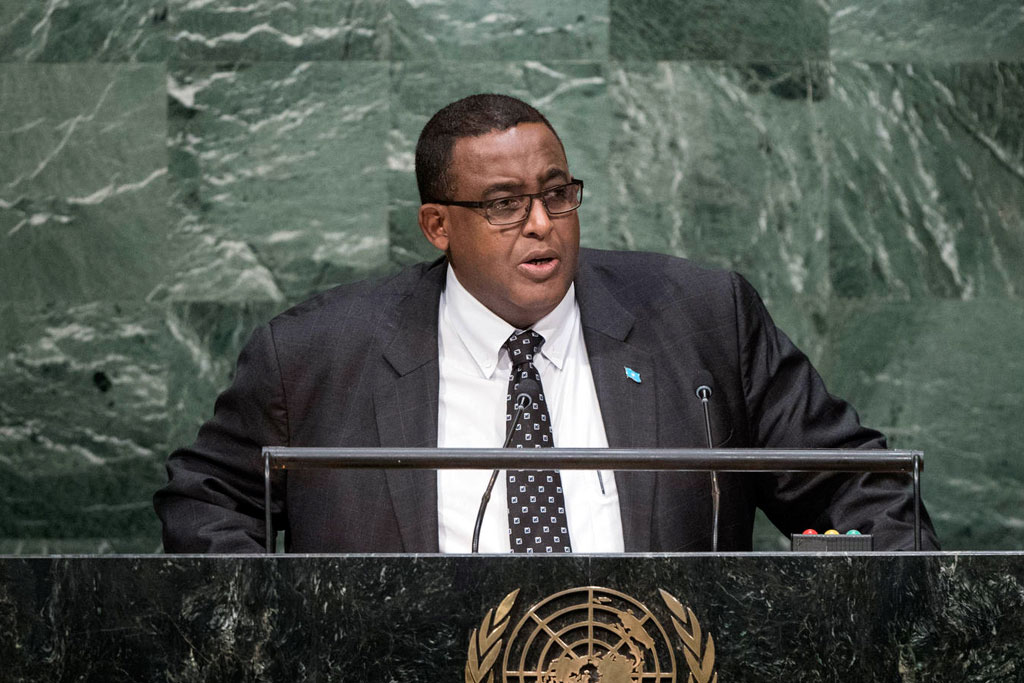At UN, Somalia proposes ‘grand development plan’ to rebuild country’s social, physical infrastructure

Applauding the international community’s role in helping Somalia emerge from a difficult past, Prime Minister Omar Abdirashid Ali Sharmarke told the United Nations General Assembly today that a new Somalia is taking shape and proposed the “grand development plan” that would help Somali’s keep building a better future.
“I want to tell you about Somalia,” he said. “But a different Somalia from the one you might have heard of. I am not here to challenge you on our notoriety as a result of a conflict that has spanned two and half decades. However, please allow me to introduce another reality.”
“My people are ambitious,” he continued. “We are survivors and, given the chance, we can drive forward the socioeconomic landscape of East Africa,” he said, noting the country’s untapped oil and gas reserves.
Mr. Sharmarke said that his Government wanted to “ensure a free and fair election,” despite the presence of “an active insurgency, which we are risking our lives to dismantle.”
He also raised the issue of Somali refugees and undocumented migrants living in temporary camps, and urged the General Assembly to help his Government find a solution.
Mr. Sharmarke then turned his attention to the lack of adequate infrastructure in Somalia, saying “the public services that many people around the world take for granted, Somalia lacks completely, or has in very short supply.”
He announced a new “Grand Development Plan” for the country to rebuild roads, schools, hospitals, community centres, ports, airports and markets, a plan that he said was aligned with the new UN Sustainable Development Goals (SDGs).
The Plan, which would be shared with the wider international community in due course, would, among others, ensure accountability and transparency for every investment made. “Each UN Member State will have the opportunity to [help transform] Somalia into an economic powerhouse and future trading partner,” he declared.
Speaking of the insurgents who, he said, has controlled Somalia four years ago, Mr. Sharmarke noted: “We are looking forward to not only bounce back for our benefit, but to also become that shining example to nations that are now in the throes of hardship, nations that are working hard to move from third world to first, and to nations that find it hard to navigate the difficult but worthwhile road of recovery.”
“Somalia has failed my generation,” he continued. “And I will dedicate my life to ensuring it does not fail the next. But I cannot do this alone. Only together, can we be the Somalia the world is waiting for.”